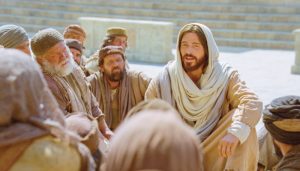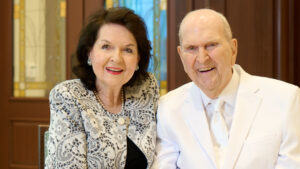
Perfection Isn’t What you Think it Is
There are a number of scriptures which counsel us to be perfect. Here are a few:
I am the Almighty God; walk before me, and be thou perfect (Genesis 17:1).
Thou shalt be perfect with the Lord thy God (Deuteronomy 18:13).
…Be perfect, be of good comfort, be of one mind, live in peace; and the God of love and peace shall be with you (2 Corinthians 13:11).
But let patience have her perfect work, that ye may be perfect and entire, wanting nothing (James 1:4).
Therefore, I would that ye should be perfect even as I, or your Father who is in heaven is perfect (3 Nephi 12:48).
Whenever this subject comes up in a Sunday class, teachers are quick to comfort us, explaining that in Hebrew “perfect” means “whole,” and that none of us will attain perfection in this life. We all nod our heads and relax a little. But there is that unease that comes when we remember that this counsel to be perfect appears fairly regularly in prophetic works, and it might mean more than we think.
Mormons have been accused by various friends of other faiths as having a “works-based gospel”—not focused enough on grace. I think this shows up when we consider being perfect. When perfection is mentioned, how many of you mentally begin to check off your “works list”?
- Temple attendance ✓
- Family prayer ✓
- FHE ✓
- Cake to neighbor ✓
Perfection and Wholeness

In Hebrew, there are two words that basically mean “perfect”: mushelam or shalem, two forms of the same word meaning perfect, complete, accomplished, entire, or intact; and tam (blameless, complete, guiltless, peaceful, having integrity).
Just reading the English equivalents for these words is a gospel lesson that broadens our concept of the word perfect. Note that the word shalem also means “paid.” We are whole and perfect because we have been ransomed. Ransomed by Christ.
“Wholeness” Is Something Different than You Thought

Even when we consider perfection as wholeness, we can miss the mark. Since it was Jewish prophets who delivered the counsel to us, let’s look at what the Jews think they were actually trying to say.
Perfection is related more to being than to doing, although nothing can be accomplished on the strait and narrow path without doing. All of our doing, however, should be pursued with the purpose of becoming, and helping others to become, whole.
Perfection is not a list of tasks, but a collection of attributes—the attributes of God that we should emulate. The Jews have enumerated them for us, and have assigned each attribute a prophet to be our example to follow.
The first three attributes are the three holiest attributes of God (three is the holy number). They are Love, Mercy, and Justice. Their exemplars are Abraham, Isaac, and Jacob. In reviewing your week, instead of focusing on your to-do list, think about how you manifested those traits. Were you loving, merciful, and just?
Four More Surprising Attributes of Perfection

There are four more attributes needed to be perfect and complete, totaling the holy number seven, which is the numerical equivalent of perfection. Some are surprisingly related to the restored gospel and to temple covenants.
The fourth attribute is Kingship. Surprised? We must become part of Abraham’s royal lineage through Isaac and Jacob. You attained this attribute at baptism. Your Patriarchal Blessing tells you how you are descended from this royal house.
Kingship is part of membership in the Only True and Living Church. Faithfulness, of course, is necessary to maintain our standing in this royal house. Eternally, the attribute of Kingship is sealed upon us through remaining true to temple covenants. David is the example of kingship to the Jews.
The fifth attribute is Prophecy. The attribute of prophecy is ours through the companionship of the Holy Ghost, which gift we receive after baptism through the laying on of hands, and which testifies of the divinity of Christ. Moses is the symbolic hero of prophecy to the Jews.
The sixth attribute is Priesthood. Power and authority of the priesthood, both the Aaronic and Melchizedek are part and parcel of God’s kingdom on earth. This power is shared by all in this kingdom, even though it is administered by men who hold offices in the priesthood, and hold the keys to do so. Aaron is the exemplar for the Jews. We would add Melchizedek.
The seventh requirement is enduring to the end in righteousness. Keeping the faith in face of trial shows Heavenly Father that we desire to enter His presence. Repentance is the key, and is not really possible without trusting in God. Joseph is the exemplar of enduring to the end.
Of course, only the atonement of Christ can complete us, but these things can change our focus and help us along the way. This definition of perfection gives me hope and helps me center on Christ instead of my to-do list. How does it change your perception of perfection?
____________
These concepts are found in the Jewish mystical writings of the Middle Ages, especially the Zohar (by Moses b. Shem Tov de Leon), and the writings of Jacob and Isaac Kohen and Joseph Gikatilla but they are based on Jewish beliefs from very ancient, Old Testament times.
Gale is the author of Days of Awe: Jewish Holy Days, Symbols, and Prophecies for Latter-day Saints.









